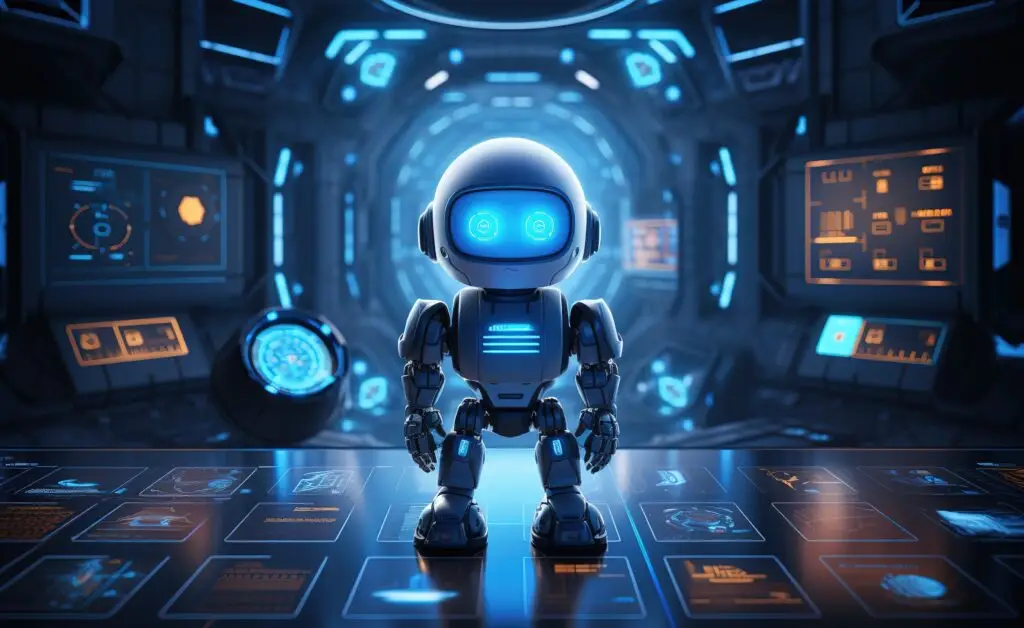
Will Marketing Jobs Survive AI?
The rise of artificial intelligence (AI) has sparked numerous discussions about its potential to reshape various industries. Marketing, in particular, stands at the forefront of this transformation. As AI technologies become increasingly sophisticated, many professionals wonder: Will marketing jobs be taken over by AI? Let’s take a dive into this question and unravel the difficulties surrounding the junction of marketing and artificial intelligence.
What Role Does AI Play in Marketing?
To figure out the potential impact of AI on marketing jobs, it’s pretty important to understand its current role in the field. AI covers a wide range of technologies, including machine learning, natural language processing, and predictive analytics. In marketing, AI applications are varied, from personalised customer experiences to data analysis and automation of repetitive tasks. That last one is a goody as it lowers your work rate while increasing your workflow.
AI-powered tools enable marketers to glean insights from substantial datasets, identify patterns, and make data-driven decisions with unprecedented precision. Also, AI-driven algorithms enhance targeting capabilities. This allows marketers to tailor content and advertisements based on individual preferences and behaviours. Bit of a game changer.
Are Marketing Jobs at Risk of Automation?
One of the big concerns surrounding AI’s integration into marketing is the potential shift of human roles. As AI algorithms become more sophisticated, they can automate routine tasks such as data analysis, content curation, and campaign optimisation. This automation raises valid questions about the future relevance of traditional marketing roles. Many of the roles that we deemed low level will most likely take the hit when it comes to streamlining using AI.
However, it’s crucial to distinguish between tasks that AI can automate and those that require human creativity, empathy, and strategic thinking. While AI excels at processing and interpreting data, it lacks the nuanced understanding of human emotions, cultural contexts, and social dynamics of a human. Marketing is inherently a human-centric discipline, relying on empathy and emotional intelligence to resonate with audiences on a deeper level. Does this mean that AI will never be able to take on these roles? No. But it will give us time to pivot enough to create new roles from the fall out. This has always been the way of the world when it comes to evolving tech and new industry.

How Will AI Impact Marketing Jobs?
The integration of AI into marketing is not synonymous with job displacement but rather with job transformation. As AI streamlines mundane tasks, marketers can redirect their focus towards higher-value activities that demand human ingenuity. Rather than replacing marketers, AI serves as a powerful ally, extending their capabilities and increasing their impact.
For instance, AI-driven analytics provide marketers with actionable insights, enabling them to refine strategies, optimise campaigns, and anticipate consumer trends more effectively. By harnessing AI tools, marketers can unlock new avenues for creativity and innovation, encouraging deeper connections with their target audiences.
Can AI Enhance Job Satisfaction in Marketing?
Contrary to popular belief, AI has the potential to enhance job satisfaction among marketing professionals. We know people who have benefitted from AI in a big, big way! By automating repetitive tasks and streamlining workflows, AI empowers marketers to allocate their time and energy towards tasks that align with their passions and expertise. This shift towards more fulfilling work can contribute to higher job satisfaction and professional happiness.
Also, AI enables marketers to achieve greater impact and drive meaningful results for their organisations. With access to real-time data and predictive analytics, marketers can make informed decisions that drive revenue growth, enhance customer experiences, and long-term brand loyalty.
Embracing the Future of Marketing
In reality, the integration of AI into marketing represents a paradigm shift rather than a threat to traditional roles. While AI technologies continue to evolve, the essence of marketing remains rooted in human creativity, intuition, and empathy. Rather than fearing displacement, marketers should embrace AI as a catalyst for innovation and transformation.
As marketing jobs evolve in tandem with technological advancements, professionals must adapt and upskill to thrive in the digital age. By embracing AI-powered tools and cultivating a growth mindset, marketers can unlock new opportunities, drive impactful outcomes, and shape the future of marketing in an increasingly AI-driven landscape.
In the dynamic junction of marketing and artificial intelligence, one thing remains certain – the human element will always be the cornerstone of effective marketing strategies. So have no fear! Just keep adapting and you will survive!


